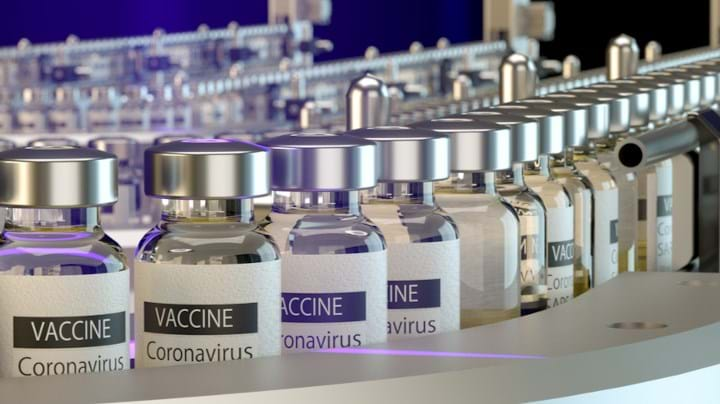WHO announces first Covid vaccine technology transfer hub

The World Health Organization (WHO) and its COVAX partners are working with a South African consortium to establish its first Covid mRNA vaccine technology transfer hub.
Technology transfer hubs are training facilities where technology can be established at an industrial scale and clinical development performed. In April, WHO put out a global call for expression of interest (EOI) to establish Covid mRNA vaccine technology transfer hubs to scale up production and access to vaccines.
The hubs will be able to transfer comprehensive technology transfer packages and provide training to interested low- and middle- income countries (LMICs). Interested manufacturers in LMICs can receive training and any necessary licences to the technology.
For this first hub, consortium partners Biovac and Afrigen Biologics and Vaccines will contribute complementary roles within the proposed collaboration. Afrigen, a biotechnology company, will act as a developer, and biopharmaceutical company Biovac will be the manufacturer.
Universities involved in the consortium will provide academic support through mRNA know-how, and the Africa Centre for Disease Control and Prevention (CDC) will contribute technical and regional support. Africa CDC was established to support the public health initiatives of member states and strengthen the capacity of public health institutions to detect, prevent, control, and respond quickly and effectively to disease threats.
WHO and its partners will bring their know-how, quality control, and necessary licences into a single entity to facilitate broad and rapid technology transfer to multiple recipients. The hub will also benefit from UN-backed organisation Medicine’s Patent Pool’s vast experience of intellectual property (IP) management and issuing IP licences. Medicine’s Patent Pool (MPP) works to increase access to, and facilitate development of, life-saving medicines for LMICs.
MPP is also assisting WHO in negotiating with technical partners, as well as supporting the governance of the hubs.
Over the coming weeks, the hub partners will negotiate details with the South African Government and public and private partners in the country and around the world.
Cyril Ramaphosa, President of South Africa, commented: “The Covid-19 pandemic has revealed the full extent of the vaccine gap between developed and developing economies, and how that gap can severely undermine global health security. This landmark initiative is a major advance in the international effort to build vaccine development and manufacturing capacity that will put Africa on a path to self determination.
“South Africa welcomes the opportunity to host a vaccine technology transfer hub and to build on the capacity and expertise that already exists on the continent to contribute to this effort.”
Tedros Adhanom Ghebreyesus, Director-General of WHO, said: “This is great news, particularly for Africa, which has the least access to vaccines.”
“Covid-19 has highlighted the importance of local production to address health emergencies, strengthen regional health security and expand sustainable access to health products.”
Since its call in April, WHO has received 28 offers to either provide technology for mRNA vaccines, host a technology hub, or both. The organisation says there are 25 EOIs from LMICs that could receive the technology to produce mRNA vaccine.
Over the next weeks, WHO says it will continue rolling evaluation of other proposals and identify additional hubs, as needed, to contribute to health security and equity in all regions. It said on 21 June, that it was hosting a local production forum this week to identify strategies to expand pharmaceutical manufacturing capacity in LMICs for Covid-19 and other priority diseases.
Through the COVAX partnership, WHO will continue its assessment of potential mRNA technology donors and will launch subsequent calls for other technologies, such as viral vectors and proteins, in coming months. COVAX aims to accelerate development and manufacture of Covid-19 vaccines, and to guarantee fair and equitable access for every country in the world. It is co-led by CEPI, Gavi, and WHO, alongside key delivery partner UNICEF.
Recent Editions
Catch up on the latest news, views and jobs from The Chemical Engineer. Below are the four latest issues. View a wider selection of the archive from within the Magazine section of this site.




